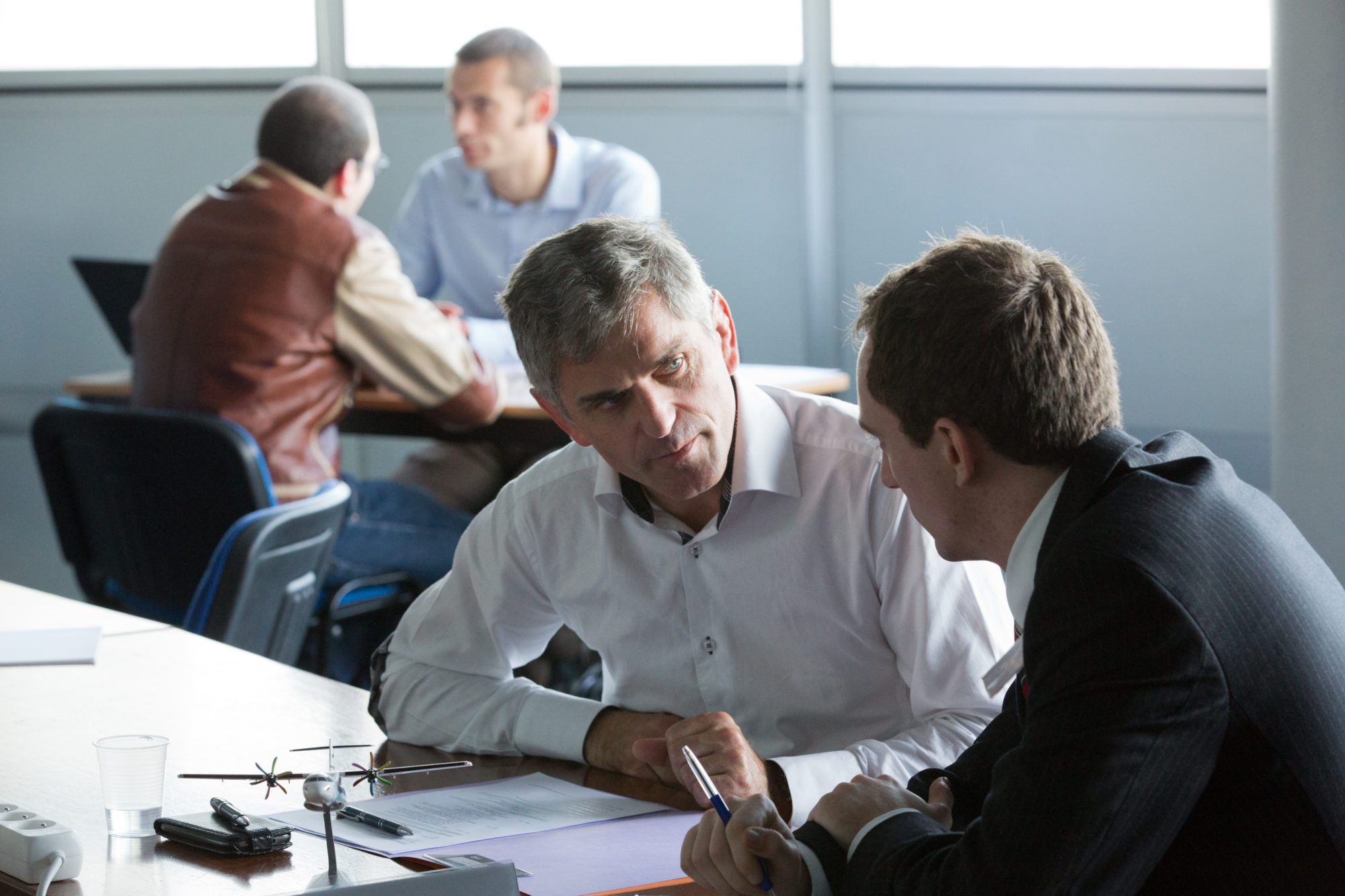Close-up on ATR’s mentorship programme

Our employees help young people to plan for their future
ATR signed a partnership agreement with a French association called “Nos Quartiers ont du talent” (Our Neighbourhoods have Talent), to establish a mentorship programme between volunteer employees and young people from disadvantaged backgrounds.
Through this, ATR is demonstrating its commitment to promoting inclusion and equal opportunities, enabling graduates under 30 years of age to receive help finding a job. Bernard Krier, Vice President of Engineering and Manager of the Systems and Propulsion Skills Centre at ATR, is mentoring his fourth mentee and shares his experience with us.
What made you decide to mentor young people looking for work, training opportunities or wanting to start up their own companies?
This is something I truly believe in. In my current role, as in my previous ones, I have always taken the time to impart my know-how to younger people without prejudging their experience. In doing so, I endeavour to give them responsibilities early on to help them to develop. This mentorship project provides an opportunity for me to share my knowledge and my experience with young people who need it.
How exactly do you help these young people?
I am currently mentoring my fourth mentee in two years. In concrete terms, I help them to draft their CVs and covering letters based on the jobs they want to apply for. I can do this in my own time from home. I then meet with them and we work together on their body language and interview techniques. I help them to identify their strengths and to build their self-confidence. I give them advice on how to avoid mistakes that would hamper their chances of success.
In addition to these “technical” aspects, I also try to help them to clearly define their life goals. Are their career plans clearly defined? Are they applying for jobs that match their training and their skills? I try to help them to focus on their future: “What would you really like to do?” I listen to their vision, their aspirations and I point them in the right direction. They are often looking for very specific roles in sectors which offer very few opportunities. I try to help them to broaden their horizons, to get their foot in the door to the business world.
Did your previous mentees see their plans come to fruition?
Yes, they did. These are not always permanent contracts, and one of them decided to continue a training to complete a thesis in a particular field of interest, but the work we do together enables them to reflect on their choices and shows them other ways to achieve their goals. Most of these young people have been looking for work for between six months and a year, to no avail. In general, they all have good qualifications. That isn’t the issue! After a number of rejections, they start to doubt themselves. I simply try to help them to rebuild their confidence and hopefully to go on to have successful careers. My mission is not to find work for them, nor can I offer them a job. I am simply available to point them in the right direction.
Would you advise your colleagues to mentor young people on this programme?
Yes! But only if they are prepared to devote the time required and have the ability to keep an open mind. Our role is not to tell them what to think or what is good for them. When it comes to providing support, it is vital to listen to what they want and to put our own feelings aside. The primary aim is to work together to identify why they are finding it difficult to get a job. I try to get them to draw their own conclusions, to provide them with the tools they need to find the solution for themselves.













